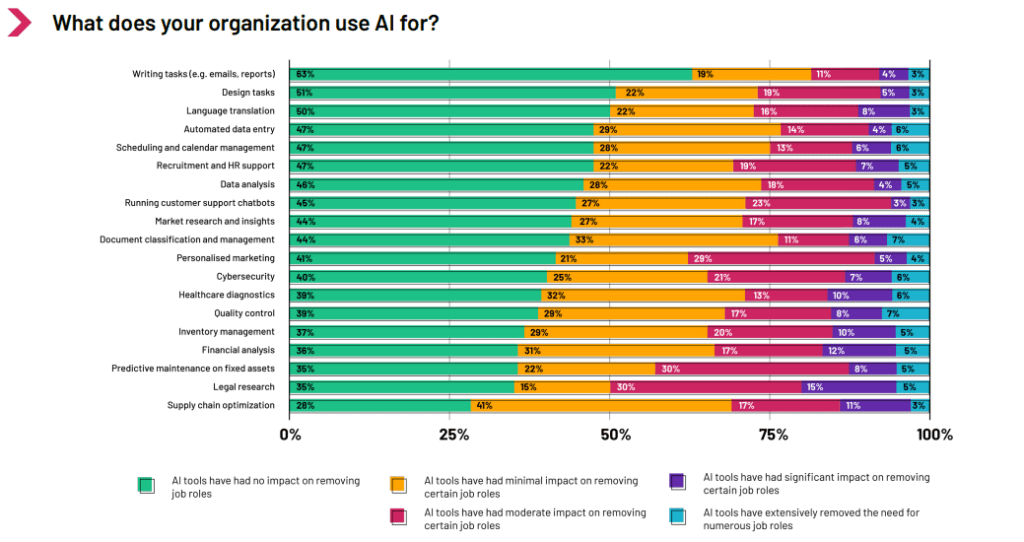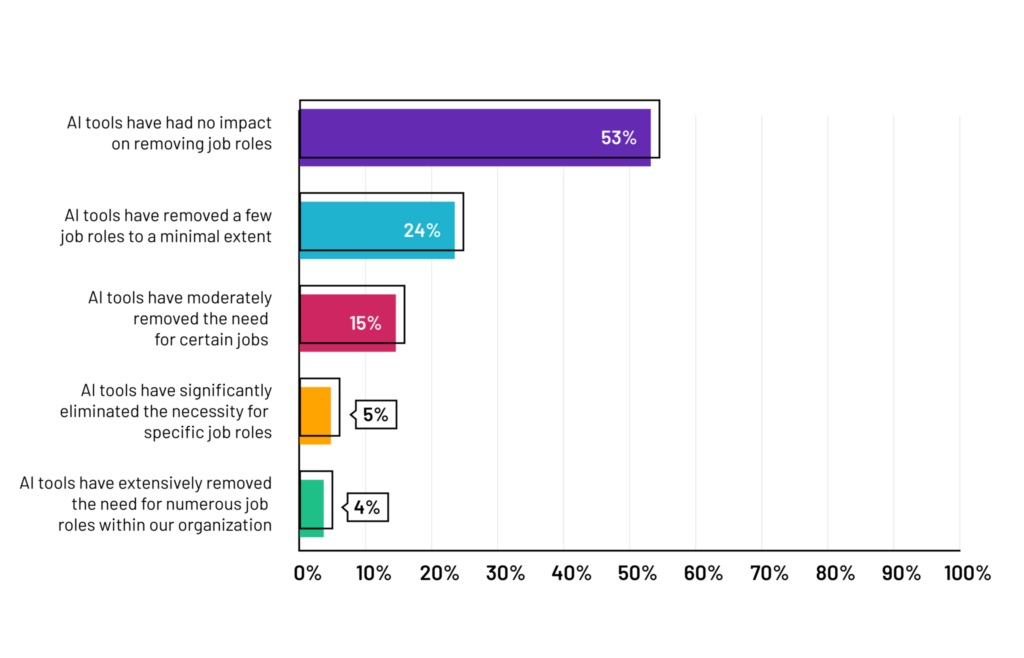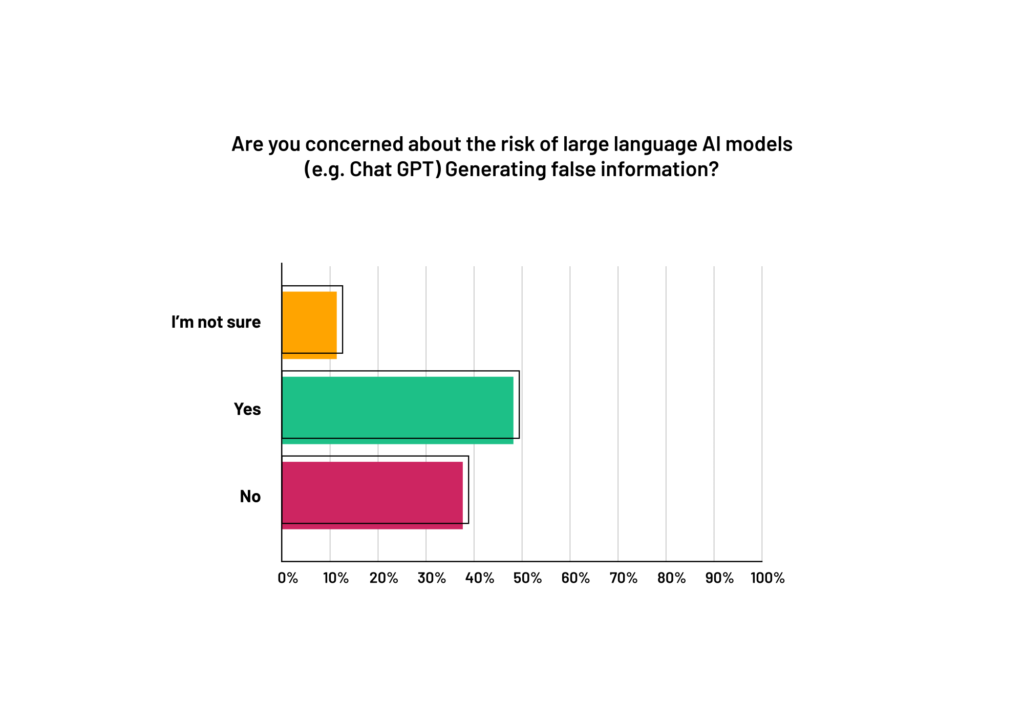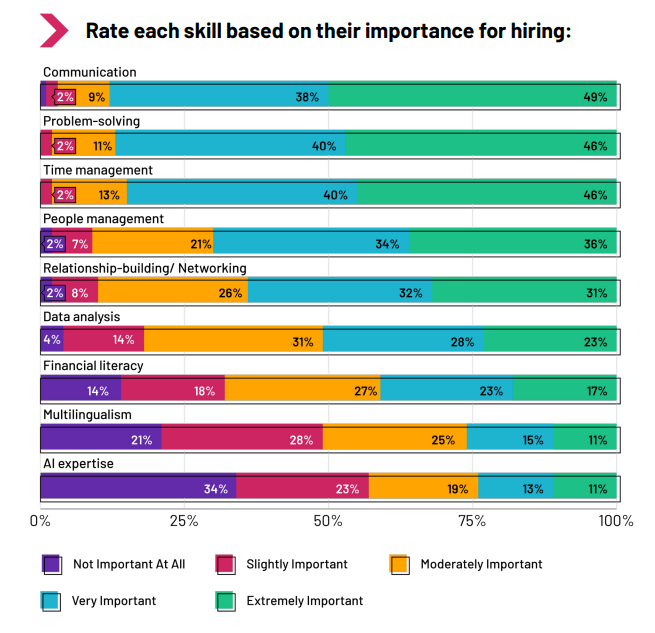Do you worry that AI may replace you in your line of work? You are by no means alone, but it may not even be a concern for you given your line of work.
We may safely assume that employees worldwide are worried about the durability of their professions, given the growing popularity of platforms like as ChatGPT and Google Bard. This is because a variety of tasks carried out in the workplace have demonstrated a significant increase in productivity when using these tools.
Table of Contents
Which Jobs Is AI Replacing?
The types of professions and functions that AI is replacing were one of the many pieces of information we gathered for our study on the Impact of Technology on the Workplace.
Owing to the generative nature of current AI systems, certain vocations appear more suitable for automation than others. In fact, our research revealed the opposite: the jobs where AI tools have little effect on eliminating employment positions are those related to writing (63%), design (51%), and language translation (50%).
Some jobs, meanwhile, were not as fortunate. For instance, supply chain optimisation was identified as the task most likely to be replaced by AI, with 72% of organisations acknowledging that at least some employment have been eliminated to complete the task. Predictive maintenance on fixed assets (65%), financial analysis (64%), and legal research (65%) are other positions at the bottom of the list.

How Widespread Are AI Job Replacements?
Businesses now have the means to take on complex issues thanks to artificial intelligence (AI) and the numerous platforms that have emerged from its development in recent years. Certain employment are being displaced since these services are frequently automating and streamlining duties.
But how much of a shift is this? Only 4% of organisations reported that AI had a significant influence on replacing employment responsibilities, according to our data, which suggests that AI isn’t having the expected impact on job replacement. Better still, a staggering 53% of organisations surveyed stated that AI has not eliminated any job functions.

What Is Keeping AI Job Replacement Low?
Given the rapid rise in popularity and productivity of AI platforms, it may be difficult to pinpoint the exact reason why job replacement isn’t higher. Let me clarify: while we are relieved that the new technology is not causing the global economy to collapse, what is causing the rate of AI job replacement to remain so low?
Our research indicates that there is currently a low level of trust in AI, especially when it comes to the dissemination of misleading information. As a matter of fact, 49% of the firms questioned expressed concern regarding the possibility of huge language AI models producing inaccurate data.
There are still many professions and abilities that won’t be replaced anytime soon since most firms don’t feel comfortable leaving their entire operation to an AI that makes mistakes.

Which Job Skills Are Still Valued?
Even while AI is replacing some jobs and responsibilities, employers, managers, and recruiters are still searching for new hires with certain highly desirable skills—some of which are unimaginably human.
For example, the top three talents were time management, problem solving, and communication, all of which 98% of respondents said were at least somewhat necessary for recruiting. Regarding these kinds of important talents, people management (91%) and networking (90%) were likewise highly noteworthy.
The fact that the value of AI abilities in the workplace hasn’t taken off yet is perhaps even more significant. In actuality, the lowest percentage of respondents—43%—said that having knowledge of AI was at least somewhat significant when it came to hiring decisions.



